“Adoption is a last resort”
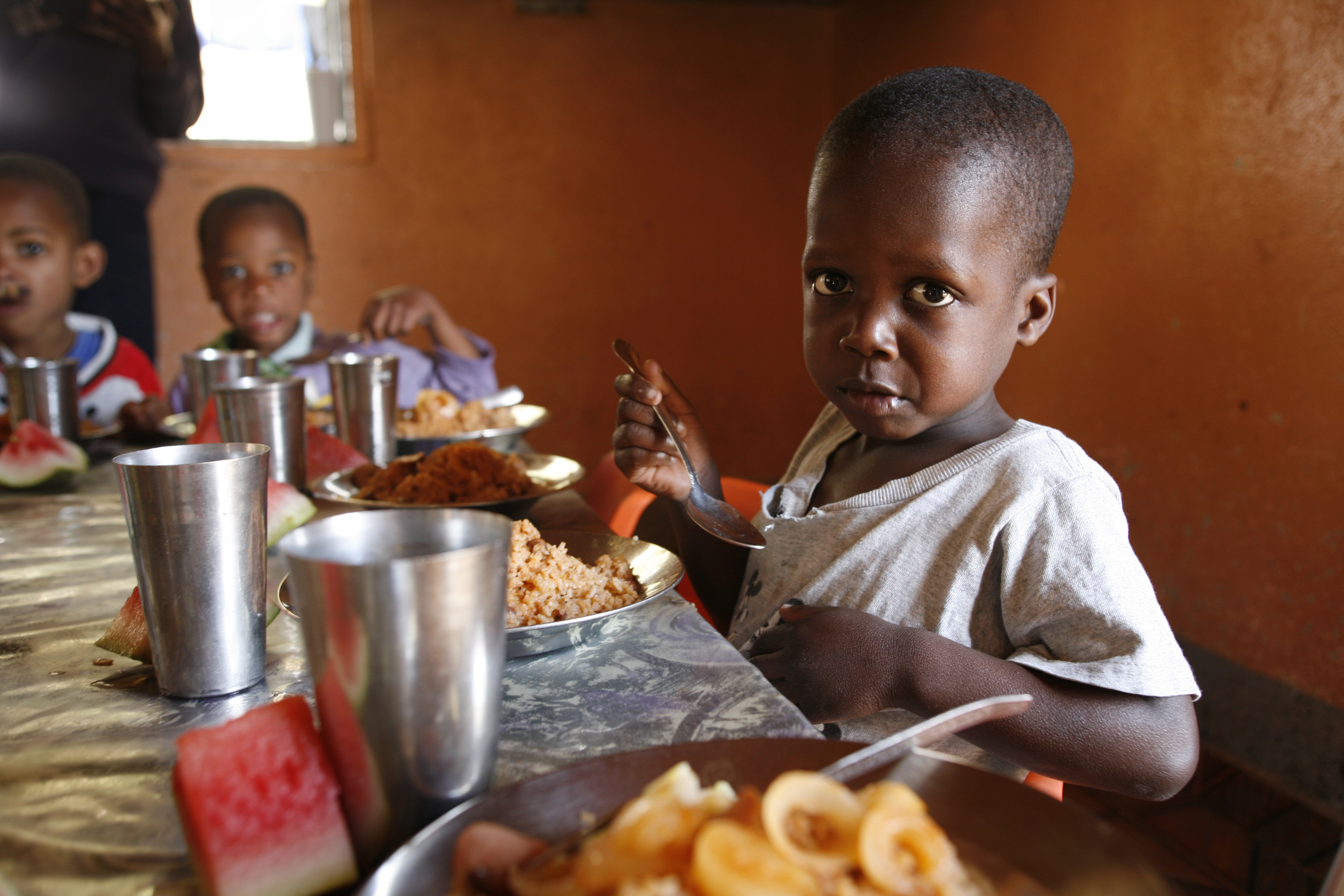
Flying planeloads of newly orphaned children out of Haiti is “reprehensible”, an adoption expert tells swissinfo.ch.
Marlène Hofstetter, head of international adoption at Lausanne-based organisation Terre des Hommes – Child Relief, warns of the dangers of rushing adoption procedures and says Swiss regulations are unsatisfactory.
The 7.0-magnitude earthquake that struck Haiti on January 12 may have killed 200,000 people, with aid agencies estimating that tens of thousands of children had been orphaned.
Even before the quake, Haiti – one of the world’s poorest countries – had 380,000 orphans, according to the United Nations Children’s Fund (Unicef).
Some children lost their parents in previous disasters, including tropical storms and hurricanes that hit in 2004, 2005 and 2008.
Others were abandoned amid the Caribbean nation’s long-running political strife, which has led thousands to seek asylum in the United States – without their children – or by parents who were simply too poor to care for them.
swissinfo.ch: Is the adoption of Haitian children now going to boom?
Marlène Hofstetter: People are making enquiries into how they can adopt a child from Haiti – especially from countries where adoptions from Haiti had already been made.
swissinfo.ch: Wouldn’t it be a good thing for Haitian orphans to be able to escape poverty, homelessness and violence and come to a Swiss family?
M.H.: First of all you have to clarify that they are in fact orphans and don’t have other family members – uncles, aunts and so on – who could look after them.
You also have to check what condition the children are in. If they’re traumatised, it’s not necessarily advisable to whisk them out of the country and place them with a new family.
swissinfo.ch: On Thursday a Dutch adoption agency flew more than 100 children out of Haiti to start new lives in the Netherlands.
M.H.: I find it reprehensible when planes full of children fly out of Haiti. From what I’ve heard, only 55 of these children have been involved in an adoption proceeding. For some of the others, adoptive families haven’t even been proposed.
swissinfo.ch: Belgium wants to facilitate the adoption of Haitian children for families who had begun proceedings before the earthquake. Switzerland is also prepared to speed up adoption processes already in motion. Is that a good idea?
M.H.: It always depends on what you mean by speed up. In any case the situation of every individual child must be thoroughly examined – including now, after the earthquake.
There must be cooperation with the Haitian authorities. We can’t go about things like the Dutch, simply removing children from Haiti. The authorities must approve every adoption, so that children have the necessary papers for their adoption.
swissinfo.ch: The French foreign minister has warned rash adoptions could lead to accusations of “abduction”.
M.H.: In France there is talk of more than 1,000 children being involved in adoption processes – and it’s clear that such a number can’t leave Haiti all at once. The French authorities have also explicitly stated that they want to work with the Haitian authorities. The process will thus last a while.
French families wanting to adopt are certainly exerting a lot of pressure on the government to enable the children to leave Haiti. Paris initially said that for the time being all adoptions had been stopped – they’ve now changed their stance a bit.
swissinfo.ch: Haitian children are as a rule black. Does this create problems in Switzerland?
M.H.: I don’t think so. When they grow up it’s another story. It’s obviously not written on their forehead that they’re adopted and Swiss.
Of course they’ll have to reckon with xenophobic comments, but that comes from the fact that they are different, which can apply to any child whether they’re from Nepal, India or Thailand. It needn’t necessarily be a question of skin colour. But sure, anyone who looks different will encounter racism, be they adopted, an immigrant or an asylum seeker.
swissinfo.ch: In that case should we not refrain from adopting children with different colour skin or from other cultures?
M.H.: Adoption is a good solution and should in principle be employed to protect a child when there really is no other solution in his or her country – when the only alternative is growing up in an orphanage. In that case international adoption is a good solution, but only as a last resort.
You also have to bear in mind the age of the child and whether he or she is traumatised. It’s not advisable to remove traumatised children from their homeland and bring them to “well-ordered” Switzerland, where no one can imagine what they have gone through.
swissinfo.ch: Are Swiss requirements sufficient for potential adoptive parents?
M.H.: No. In many European countries parents have to attend preparatory courses, which can last several months, where it is explained in detail what adoption is and what they can expect to face.
That’s not the case in Switzerland. Yes, there’s a bit or preparation during the clarification process carried out by the cantons, but this varies greatly. Detailed preparation isn’t really carried out here.
Jean-Michel Berthoud, swissinfo.ch (Adapted from German by Thomas Stephens)
Terre des Hommes International Federation (TDHIF) is a network of 11 national organisations whose mission is to provide active support to children, their families and their communities without racial, religious, political, cultural or gender-based discrimination in the framework of the UN Convention on the Rights of the Child.
The Terre des Hommes – child relief (Tdh) Foundation is the largest private international children’s aid organisation in Switzerland. Present in 30 countries, Tdh creates concrete solutions for children and their communities which improve their lives.
In the framework of the International Campaign against Child Trafficking (ICaCT), Terre des Hommes is raising the issue of international adoptions as a potential form of trafficking.
Port-au-Prince airport is small, damaged and congested and the city’s port is non-operational.
There is a shortage of warehouse space, and a lack of vehicles and fuel shortages are hindering the transport of relief supplies.
Security escorts are required to deliver relief goods, affected populations are scattered in hundreds of sites around the capital Port-au-Prince and nearby cities.
Roads and bridges are damaged, some still at risk of landslides.
Logistical bottlenecks are developing because some shipments include goods that are not in the UN humanitarian appeal.

In compliance with the JTI standards
More: SWI swissinfo.ch certified by the Journalism Trust Initiative

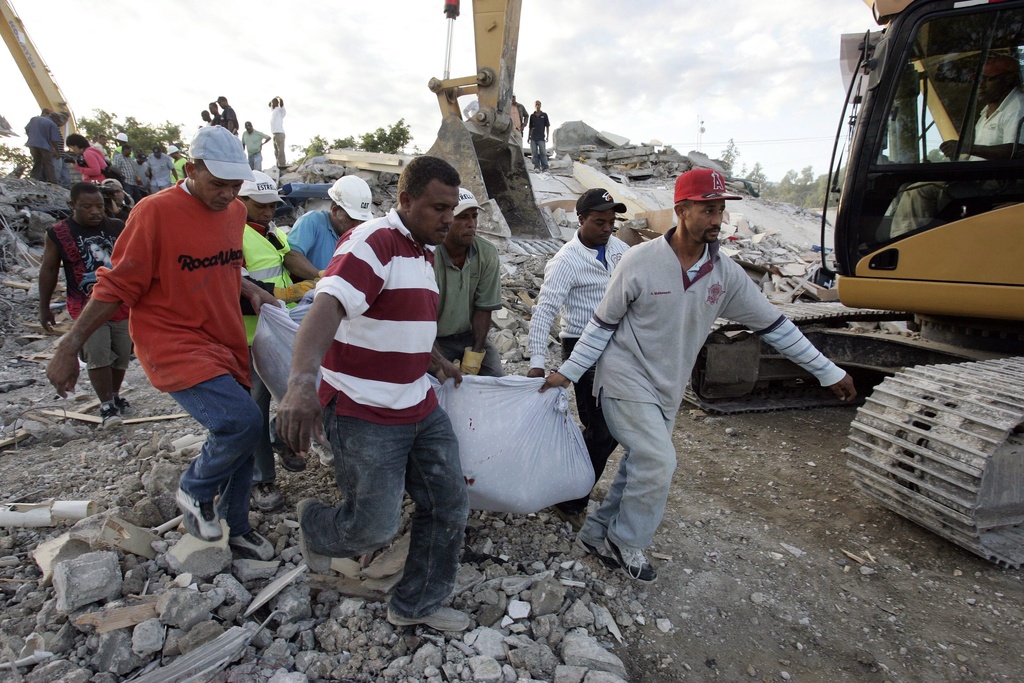
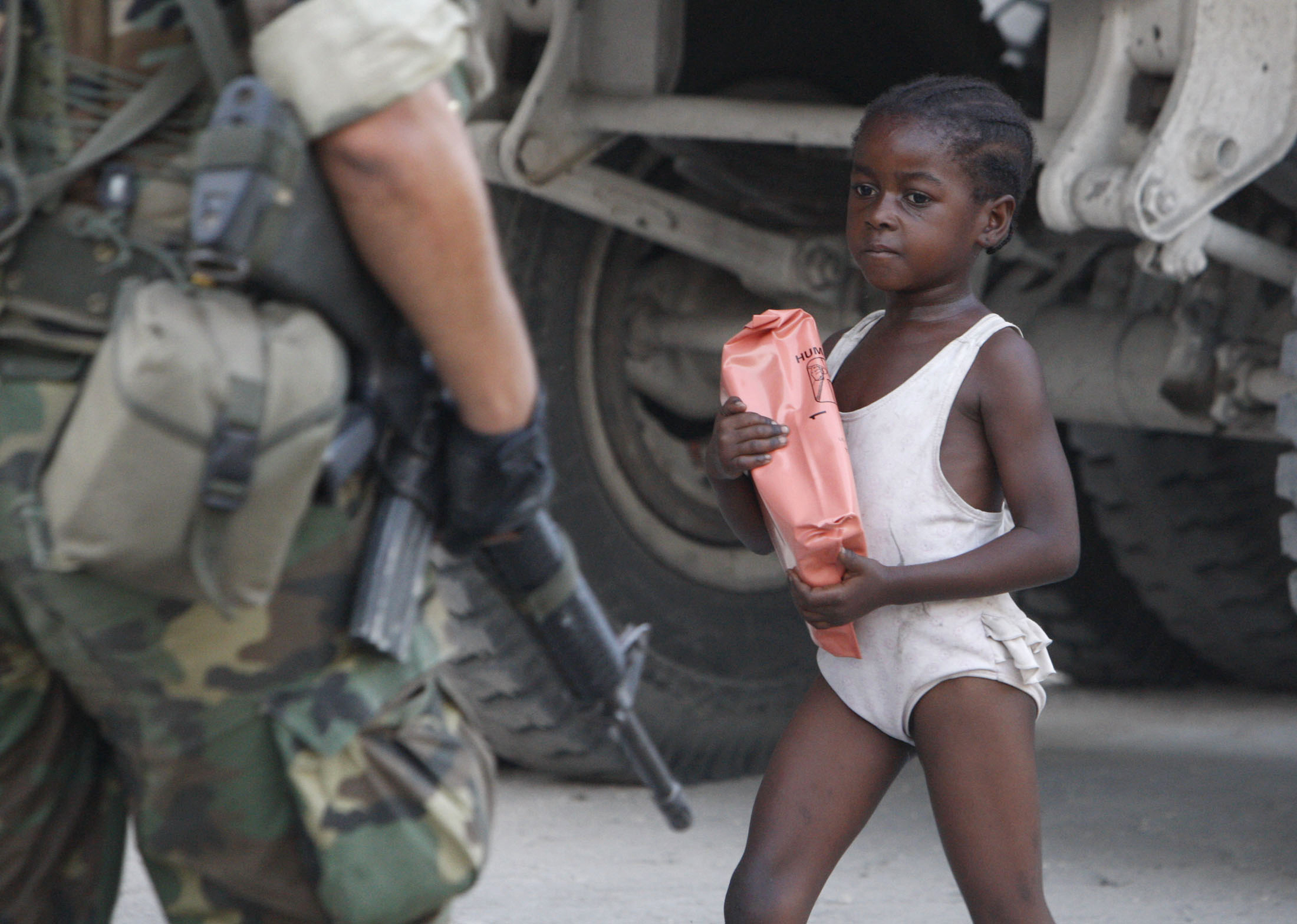
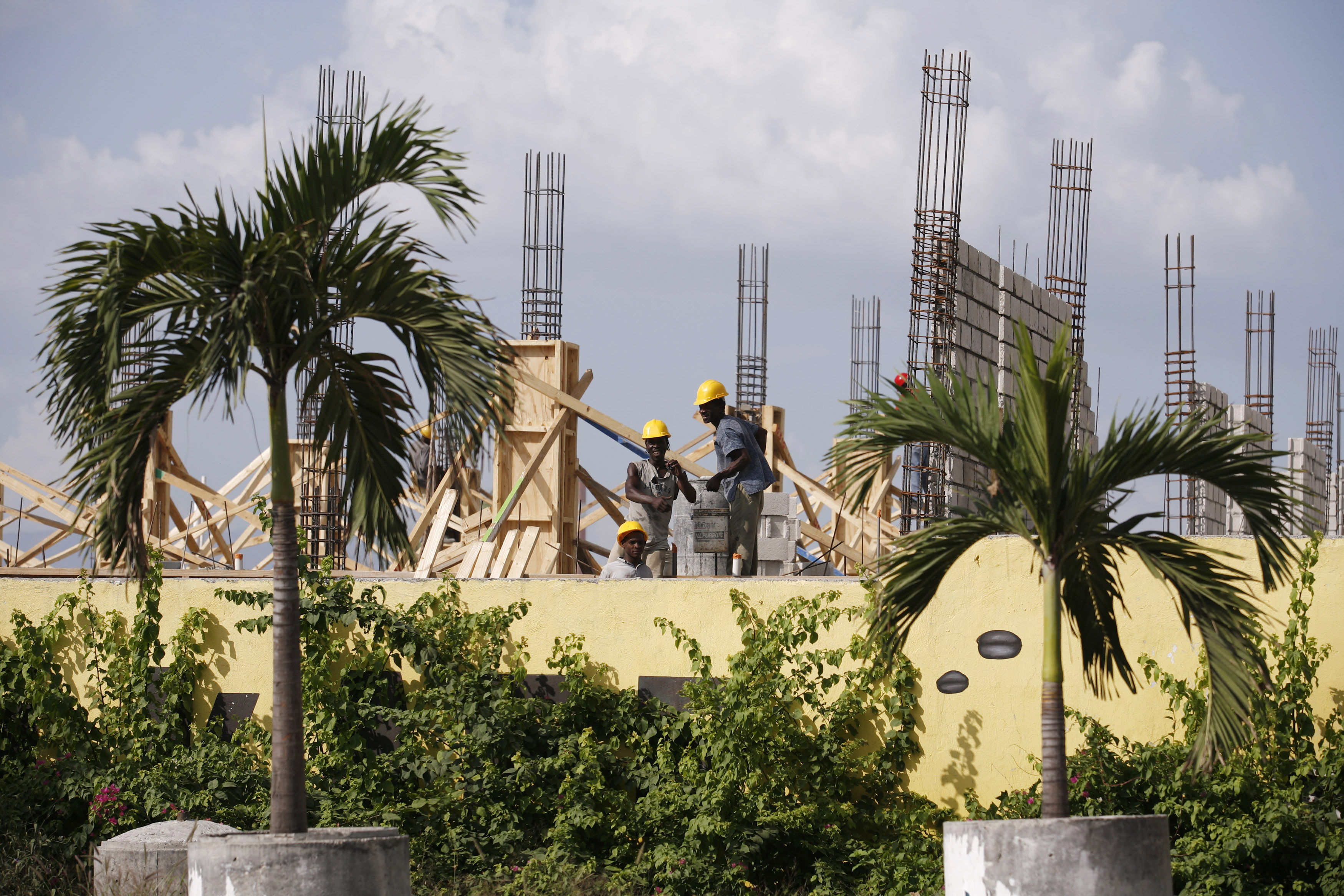
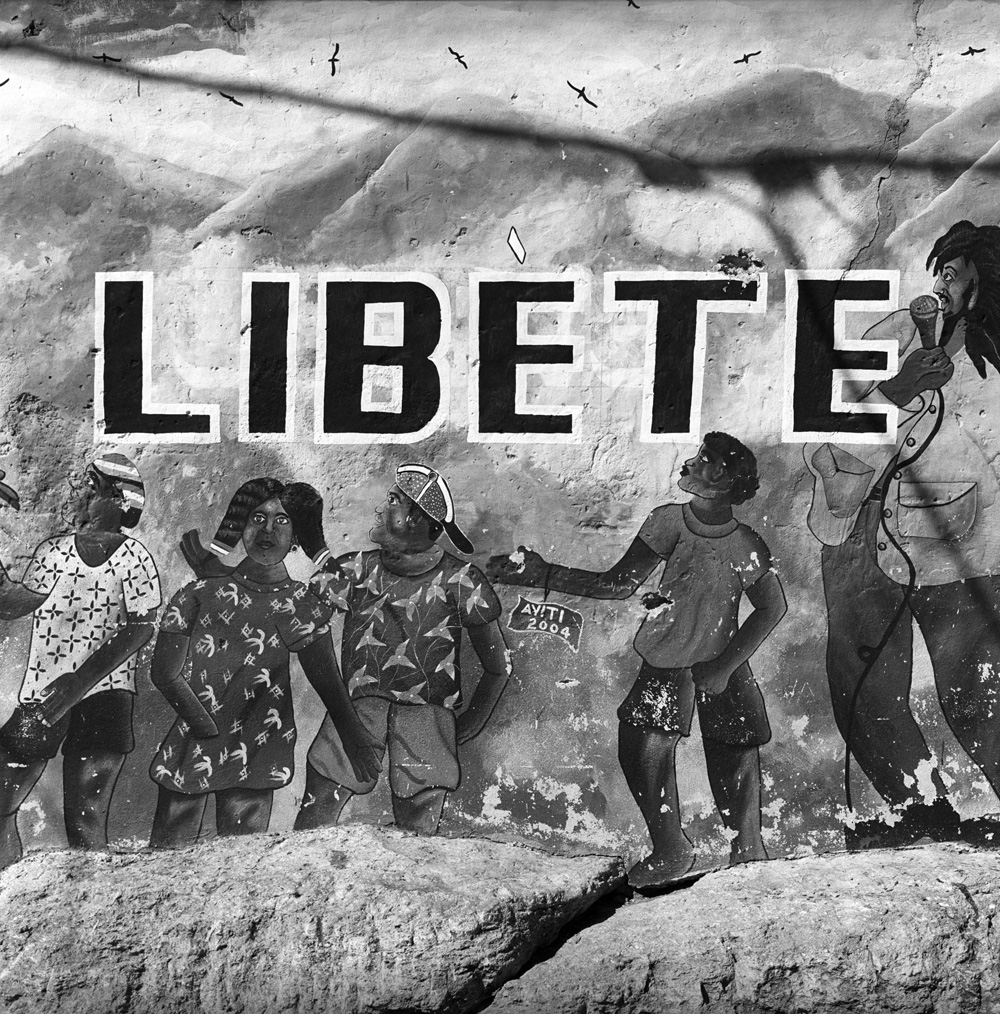
You can find an overview of ongoing debates with our journalists here. Please join us!
If you want to start a conversation about a topic raised in this article or want to report factual errors, email us at english@swissinfo.ch.